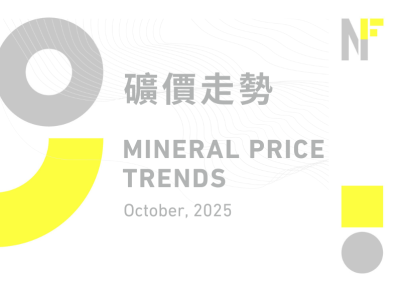The Update on The Magnet Industry 2024/08
Highlight of the Month ◎ Jerry Yang, COO
This month, we've seen a slight uptick in rare earth prices, but the overall market remains relatively unchanged, with supply still outpacing demand. China continues to grapple with the challenges of overproduction in both electric vehicles and rare earth minerals. As a result, the permanent magnet industry, sandwiched between these two segments, is facing unprecedented pressure.
Last month, we focused on analyzing the essence of "technology" in electric motors and how it drives the potential of permanent magnet "products." This technology not only converts energy but also transforms material properties into economic and political factors.
In contemporary times, humanity is attempting to construct the envisioned image of an ideal society. While confronting the threats to the survival environment posed by the greenhouse effect and various forms of pollution, we are simultaneously pursuing a high-quality lifestyle with maximum efficiency.Within this ideal blueprint, the development of electrical technology has become a driving force, underpinning critical areas such as renewable energy, electric vehicles, and medical industries. The necessity arises from humanity's increasing ability to harness different forms of energy conversion, leading to a more comprehensive control over the natural world. However, the omnipresence of electrical technology has irrevocably shaped our material existence.
This month's news revolves around the competitive pressures emerging from advances in electric motor technology. Shifting focus from a science and technology studies (STS) perspective to political economics. While the necessity and potential of electrical technology development are widely recognized, China and the West have adopted vastly different approaches to this competition. While the West tend to embrace more free-market economic systems, China's socialist market economy prioritizes government intervention in market resources. Proponents argue that this approach can yield more effective advancements for both industries and the nation.
The negotiation of carbon rights constructs a competitive stage that is both new and old, where the tension of geopolitics not only hinders the development of green energy technology but also represents the ideological competition between cosmopolitanism and nationalism. The risks of the supply chain ultimately represent just the tail end of the turbulence. What we must contemplate is, "Whose version of this defined 'COSMOS' is it? And how is redefinition possible?"
In contrast, the free-market economies of the West have lost their initial advantage in rare earth mining and permanent magnet industries due to internal competition and the pursuit of profits. However, concerns over the potential monopoly of the electrical technology supply chain have spurred Western companies to leverage the strengths of the free market, fostering flexible and organic collaborative relationships. This has led to diverse solutions, such as independent rare earth mining outside of China, the development of new rare-earth-free magnets, and more human-centric electrical designs.
I believe that the tug-of-war between these two political economic systems should not be viewed as a zero-sum game but rather as a natural dynamic equilibrium within the framework of human history. Pressure, when applied to either side of a conflict, can serve as a catalyst for innovation and development, similar to how electrical technology converts energy. This process can eventually turn the tables on the party exerting the pressure.
Be the first to know the latest news in the magnetic materials industry.
Subscribe now!



